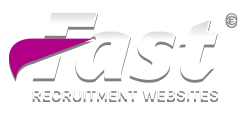The COVID-19 pandemic ushered in a new era of remote work, with millions of employees adapting to the challenges and advantages of working from home. This shift prompted many employers to focus on output and quality of work, recognising that productivity could be achieved without the traditional constraints of the office. However, amidst the transition back to in-person work environments, questions are arising about who truly benefits from this change. Whilst some employees relish the idea of returning to the office, others are finding it challenging, particularly when it comes to work-life balance and the re-emergence of micromanagement.
At the height of the pandemic, remote work became a necessity. Employers had to trust their employees to work independently and deliver results. This shift led to a more outcome-driven approach, where employees were judged by the quality and quantity of their work rather than the hours they spent at their desks. However, in recent months, it appears that some employers are reverting to valuing hours worked as a measure of productivity. This shift raises concerns about the return of unnecessary meetings and distractions that were once part and parcel of office life. It's almost as if employers have started to believe that their employees are only working when they are within eyeshot.
Increased commute times are another drawback of returning to the office. Employees who once enjoyed the benefits of working from home now find themselves spending precious hours each day traveling to and from work. For parents, having to traverse the comeback of their commute coupled with school drop-offs and pick-ups, it takes even more time out of their day and away from their families.
One of the less appealing aspects of returning to the office is the resurgence of micromanagement. Employers who were forced to trust their remote workforce during the pandemic are now relishing the opportunity to keep a watchful eye on their employees once again. This shift in management style can lead to feelings of resentment and frustration among employees, who feel they are being monitored unnecessarily, having enjoyed much more autonomy when working remotely.
Freelancers and flexible workers are also feeling the effects of the return to office-based work. Many are finding that part-time job opportunities are becoming scarcer, with employers increasingly offering full-time positions for roles that could easily be done on a part-time basis. Some employers look to be paying to employ full-time staff, even if the workload doesn’t necessitate it, because they have more control over a full-time 9-5 workforce, who may have lower expectations for flexibility and work-life balance than a part-time employee. The upsides of (perceived) improved productivity in this scenario, however, would surely be cancelled out by the paying of unnecessary hours.
As UK Plc navigate the return to office life, it's essential to acknowledge that there is no one-size-fits-all solution. While some individuals thrive in a bustling office environment, many prefer a more balanced approach. The concept of a hybrid work model, where employees split their time between the office and remote work, has gained traction. According to a recent survey, 71% of workers view a flexible working pattern as important to them when considering a new role, while 69% say the ability to work remotely is important. A hybrid approach offers the best of both worlds; it allows employees to maintain some level of flexibility whilst still benefiting from the social interaction and collaboration that the office provides.
Within the hybrid model, in the United States, a phenomenon known as 'coffee badging' has emerged. This term has been coined for employees that show up at the office in the morning simply to engage with colleagues and satisfy their employer's need for visibility, before returning home for the bulk of their productive work hours.
Research points to the future of work being based on a balance—one that suits individual needs and maximises productivity. Whether it's a hybrid work model or other flexible arrangements, it's clear that the traditional office-based approach may no longer be the ideal solution for everyone.
Relying on hours worked versus output achieved seems a draconian management approach, when studies show that remote workers often exceed the productivity of an office-based employee. As recruitment web design, we’re lucky that we can work in alternative environments to a traditional office set-up, and at hours that suit the employee. We’re advocates for working autonomously, and believe employees are more loyal and committed to a company when they’re trusted to do what’s asked of them.
Does your recruitment website meet today’s expectations? Does it champion flexibility and alternative working practices? If you’d like more information on how to maximise your website and online presence, contact us on 01302 288591.

